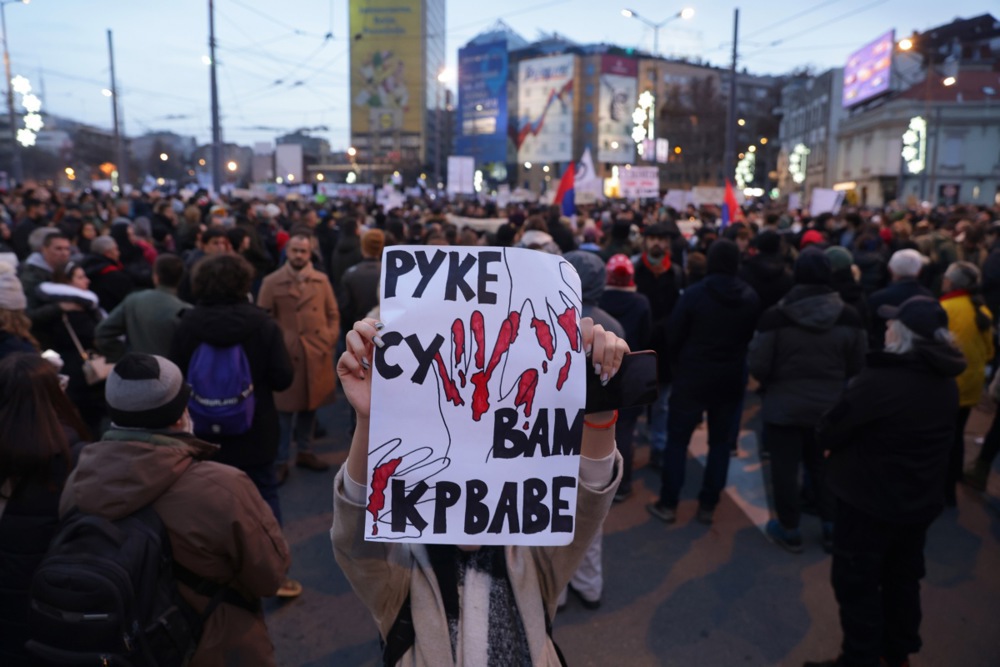 Euractiv is part of the Trust Project
Euractiv is part of the Trust Project
Spaniards celebrate the start of the new year by eating twelve grapes, one for each month, but 2025 could bring some sour grapes for Socialist Prime Minister Pedro Sánchez (PSOE/S&D).
This ritual believed to attract good fortune, might be just what he needs in 2025, as two high-profile, alleged corruption cases could jeopardise the government’s long-term future.
The first is the 'Koldo case', involving one of his former collaborators, former transport minister José Luis Ábalos, and an alleged €4 million in kickbacks for face mask purchases during the pandemic.
The ‘Koldo case’ reached its media peak on 12 December, when Ábalos – expelled from the PSEO last February over this murky affair – voluntarily appeared before the Spanish Supreme Court to claim his innocence.
“There was no commission," the former minister said of the accusation of the alleged kickbacks.
His former right-hand man, Koldo García, allegedly the scheme’s mastermind and who gave the scandal its name, also testified before the Court on 17 December, denying the accusations.
However, the ‘Koldo case’ is not Sánchez’s only cause of concern in 2025.
The second hot dossier concerns his wife, Begoña Gómez. In April 2024, a Spanish judge opened an investigation into alleged influence peddling and corruption, spurred by a complaint from the civil servants' union Clean Hands.
The Union is linked to far-right forces, including Vox (PfE), the third-largest party in the Spanish parliament.
The affair prompted Sánchez to announce in late April 2024 that he was taking five days of reflection to consider resigning because of the pressure he and his family were suffering following “false” accusations from the far right.
Both political hot potatoes will remain in the media spotlight in 2025 and will not help Sánchez and his fragile coalition government with the left-wing Sumar platform to stay the course. However, they remain confident they will end the current term in August 2027.
'Eternal recurrence'
Meanwhile, Spain's main opposition party, the centre-right Spanish People's Party (PP/EPP), and Vox are using the government's troubles to call for early elections.They are especially politically exploiting the differences of opinion between the PSOE and its partner Sumar, such as in the Ukraine war or the conflict in Gaza, to show the fragility of the ruling coalition.
In the latest parliamentary debate of the year, PP leader Alberto Núñez Feijóo urged Sánchez not to “play the victim in front of the judges” while ironically summarising the prime minster's 2024 legal woes as "12 months, 12 legal cases."
Núñez Feijóo’s comments referenced various corruption probes involving Socialist-linked officials.
However, he forgot to mention that Sánchez first came to power in 2018 after a successful censure motion against the then-prime minister Mariano Rajoy (PP) following a serious case of corruption in the PP, known as 'Gürtel.’
That was the first time a government had fallen in Spain since Francisco Franco's dictatorship ended.
The ‘Puigdemont problem’
Many political analysts predict that former Catalan President Carles Puigdemont, leader of the right-wing separatist JxCat party, will pressure Sánchez to obtain more concessions.While JxCat backed Sánchez’s 2023 re-election through a controversial agreement in November of that year, Puigdemont has gradually moved closer to the PP against Sánchez – joining forces with the centre-right party against several laws tabled in parliament by the PSOE.
He also recently threatened Sánchez with the rejection of the 2025 budget. If the government fails to approve the national accounts for next year, “the normal thing would be for him [Sánchez] not to continue” in office, Puigdemont warned.
These threats are not new, as he has frequently expressed dissatisfaction with the government. He claims Sánchez has failed to honour commitments and could now ask for more powers for Catalonia in migration and tax policy in exchange for not dropping the government.
Despite an amnesty law for Catalan separatists involved in actions from 2012-2023, including the 2017 secession attempt, Puigdemont's legal situation keeps him exiled in Waterloo, with only a brief visit to Barcelona last August.
With all these clouds now gathering on his political horizon, one can understand that Sanchez will need his twelve lucky grapes in 2025.
[Edited by Charles Szumski/Martina Monti/Alice Taylor-Braçe]

 euractiv.de
euractiv.de
 euractiv.fr
euractiv.fr
 euractiv.es
euractiv.es
 euractiv.it
euractiv.it
 euractiv.pl
euractiv.pl
 euractiv.bg
euractiv.bg
 euractiv.cz
euractiv.cz
 euractiv.gr
euractiv.gr
 euractiv.ro
euractiv.ro
 euractiv.sk
euractiv.sk






